International trade grew in the second quarter of 2016, according to OECD figures, writes Alex Gray on the WEF website.
This halts two years of declining figures. It’s a rare piece of good news for the global economy, and comes days before the G20 leaders’ summit takes place in China.
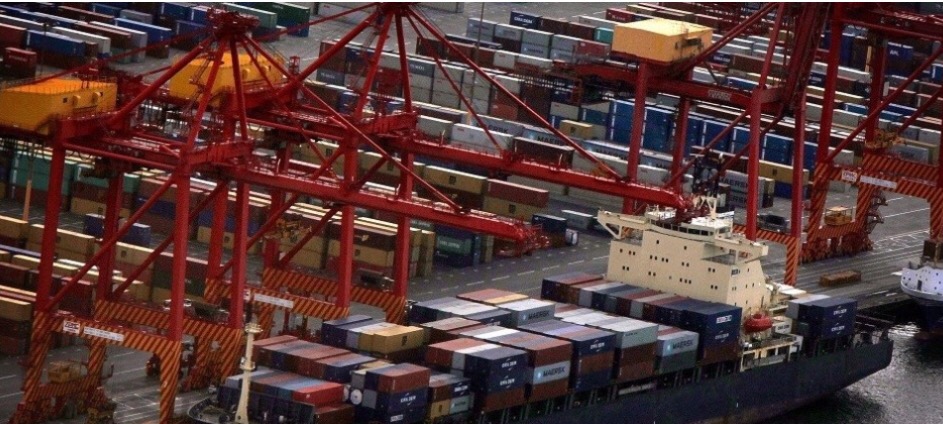
Trade among members of the G20, a group of 19 countries and the European Union which represents 85% of global GDP, grew modestly in the second quarter of this year, the first increase since early 2014.
Combined exports in the G20 rose by 1.5% in the second quarter of 2016, after falling for the previous seven quarters.
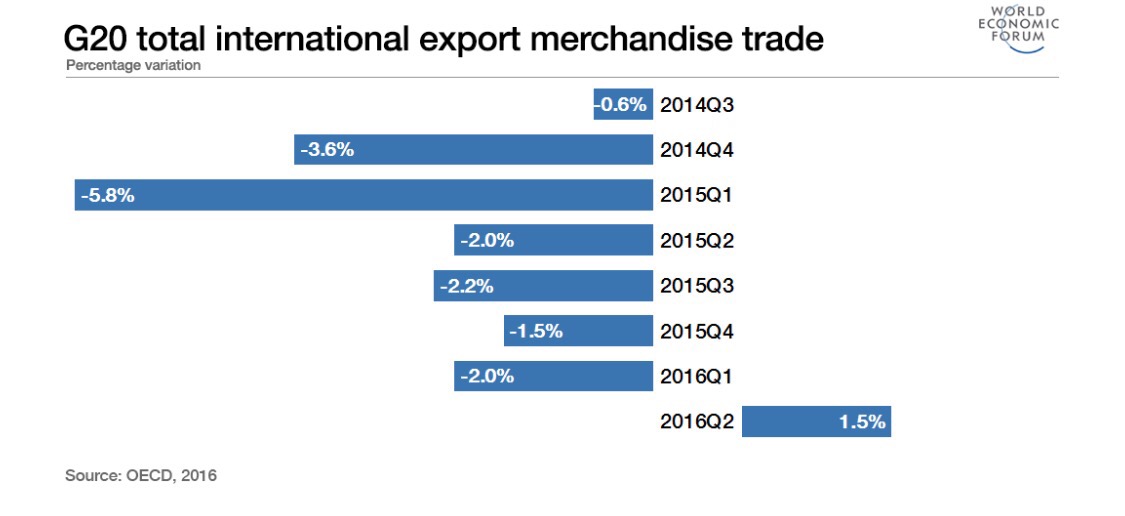
However, there were some marked differences between individual countries. Exports grew in almost all G20 economies except Argentina, Canada and China. India, South Africa and Turkey all registered growth of more than 5%.
Combined imports rose by 2.0%, after eight consecutive quarterly falls. All G20 economies recorded growth in imports in the second quarter of 2016, except Argentina, France, India, Indonesia, and Mexico, who all registered slight falls. Russia’s imports fell by 5.0%.
China recorded the highest growth in imports at 6.6% growth in the second quarter, but levels remain lower than in 2014.
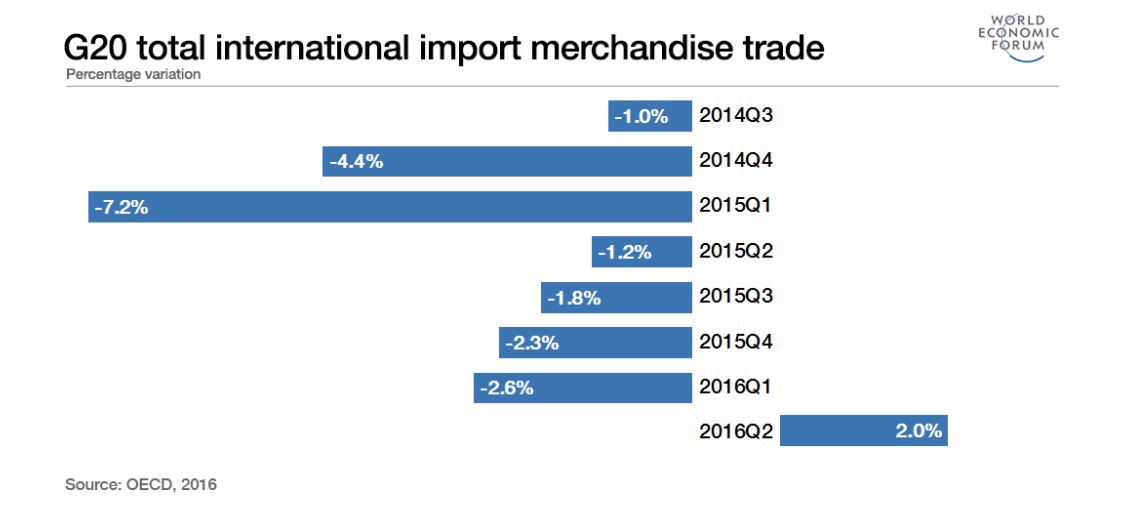
The G20 comprises 19 individual countries: Argentina, Australia, Brazil, Canada, China, France, Germany, India, Indonesia, Italy, Japan, Mexico, Russia, Saudi Arabia, South Africa, South Korea, Turkey, the United Kingdom, the United States of America; as well as the European Union.
International trade is an important driver of economic and corporate growth. This map shows just how much of that trade is driven by the movement of goods via shipping.
Constructed using 250 million data points, the map, made by data visualization company Kiln, shows the movements of the world’s commercial shipping fleet in 2012.
The red lines represent tankers shipping oil around the world. The blue lines represent raw materials such as iron ore and coal, and the yellow lines represent container ships carrying finished goods.
These tens of thousands of ships, travelling across our seas every day, drive global trade and the economy.

Whilst the international trade figures represent a glimmer of hope for growth in the global economy, they remain significantly below the post-crisis highs seen between 2011 and 2014.
Maintaining the Momentum of World Economic Recovery is a key theme at this year’s G20 summit.
World leaders will gather this weekend in Hangzhou, a city of about 6 million people southwest of Shanghai. It is the first time that China has hosted the event, now in its 11th year.
The G20 plays a significant role in shaping the fortunes of the world economy and is the premier forum for international economic cooperation. The group represents 84% of the world economy, 79% of world trade and 65% of the world population. The G20 Leaders’ process was established after a joint EU-US initiative back in 2008 to tackle the global financial crisis.
This week I have been back in Dubai for meetings.
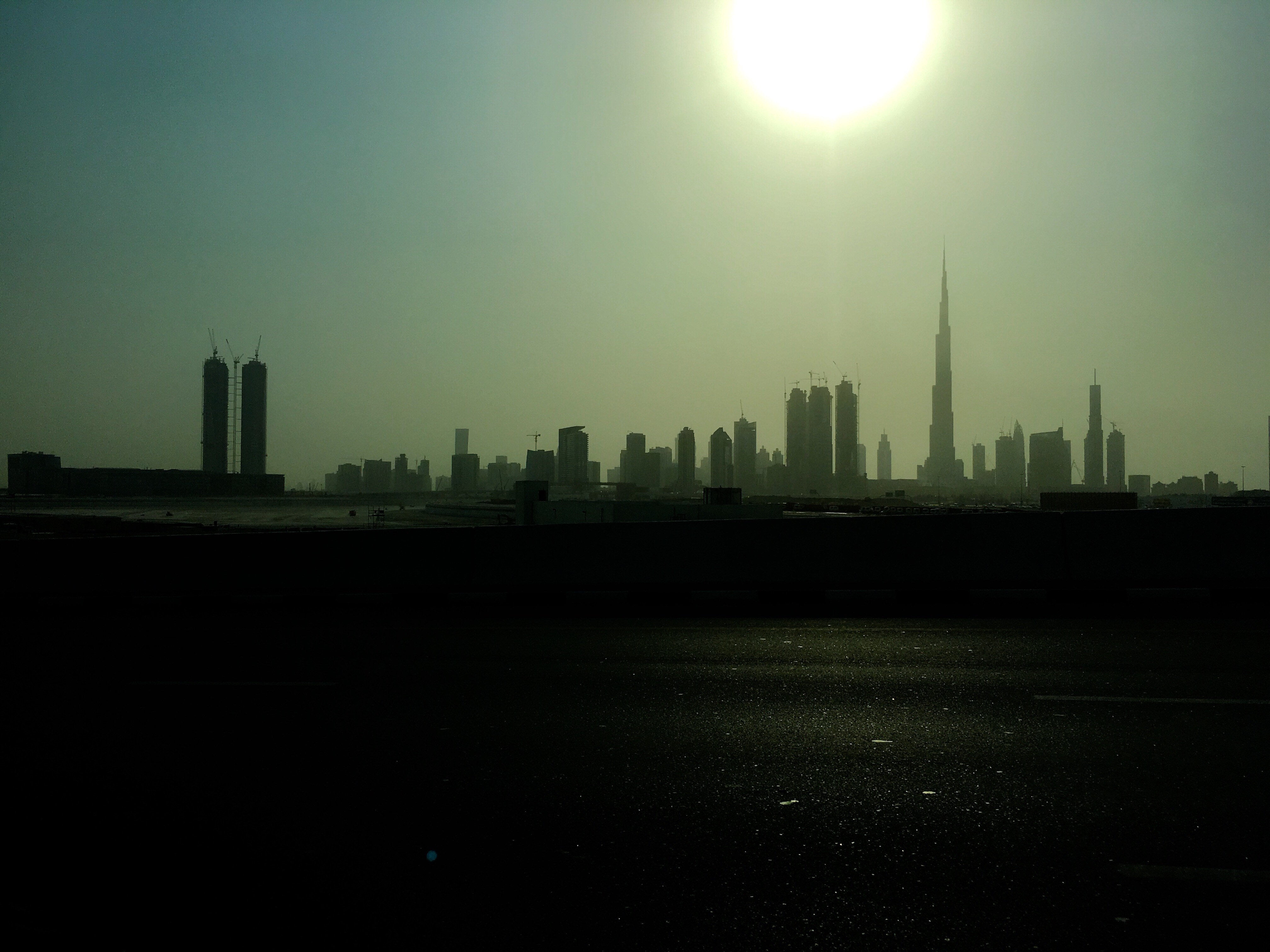
In the past there was a sating that all roads lead to Rome. Well today they will take you to Dubai in the United Arab Emurates (UAE).
For goods and travellers Dubai and United Arab Emirates has become the center, the leading global hub and the place to pass trough on journeys from somewhere to somewhere else – connceting the world.

However more and more UAE and Dubai has become a place to visit and to stay in.
This is an amazing place where everything is moving all the time.
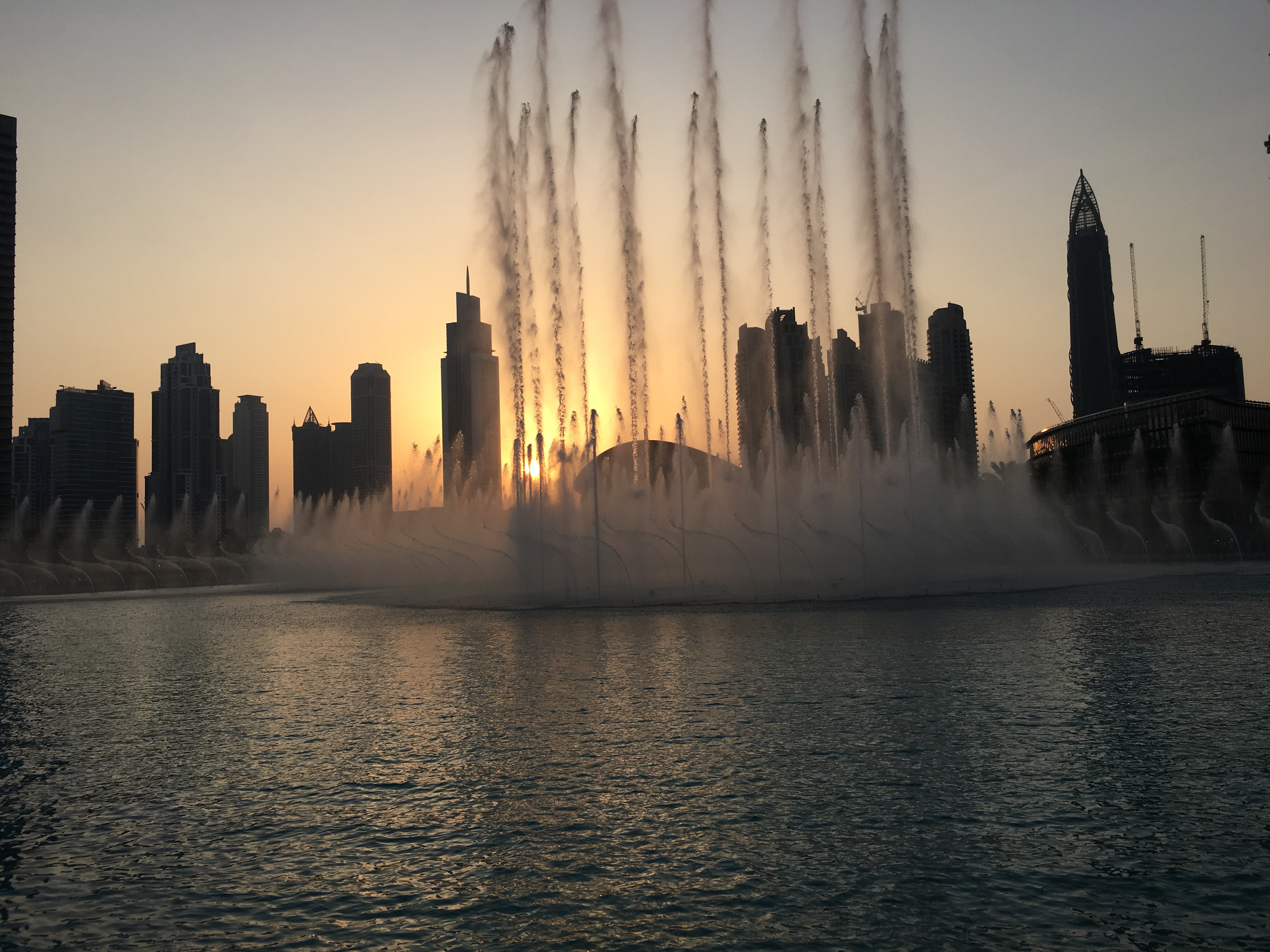
At one time people claimed that half of the worlds’ building cranes were in UAE. They might have been right.
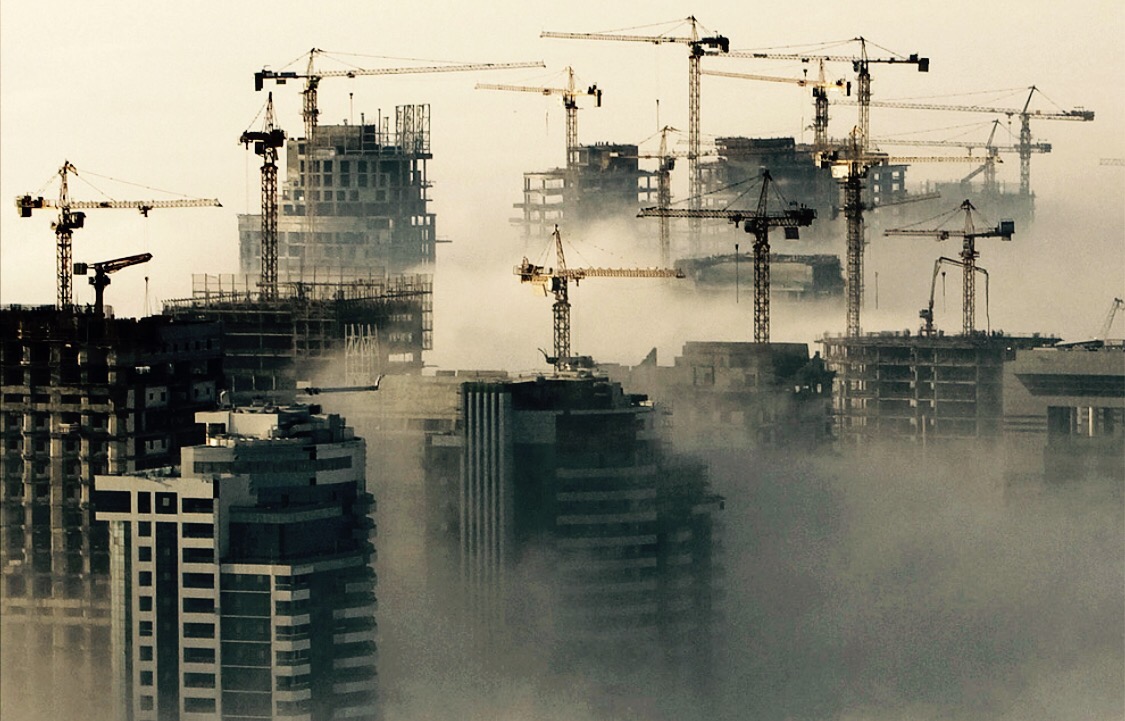
I have worked in UAE for a long time and the last years more and more. Being in Dubai and Abu Dhabi always brings me a feeling of watching the future. As the excellent airline Emirates says in its slogan, “Hello Tomorrow”.

Flying out from Dubai International this morning I said to myself, I will go back to the future soon again.
This week International Standards Organization (ISO) held its 39th Gneral Assembly in Beijing, China – the so called ISO-week-China.
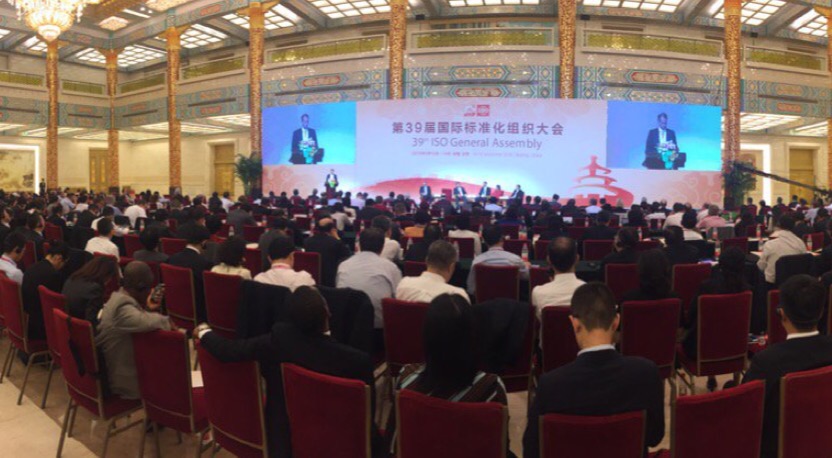
A very important meeting. A global world needs global standards.
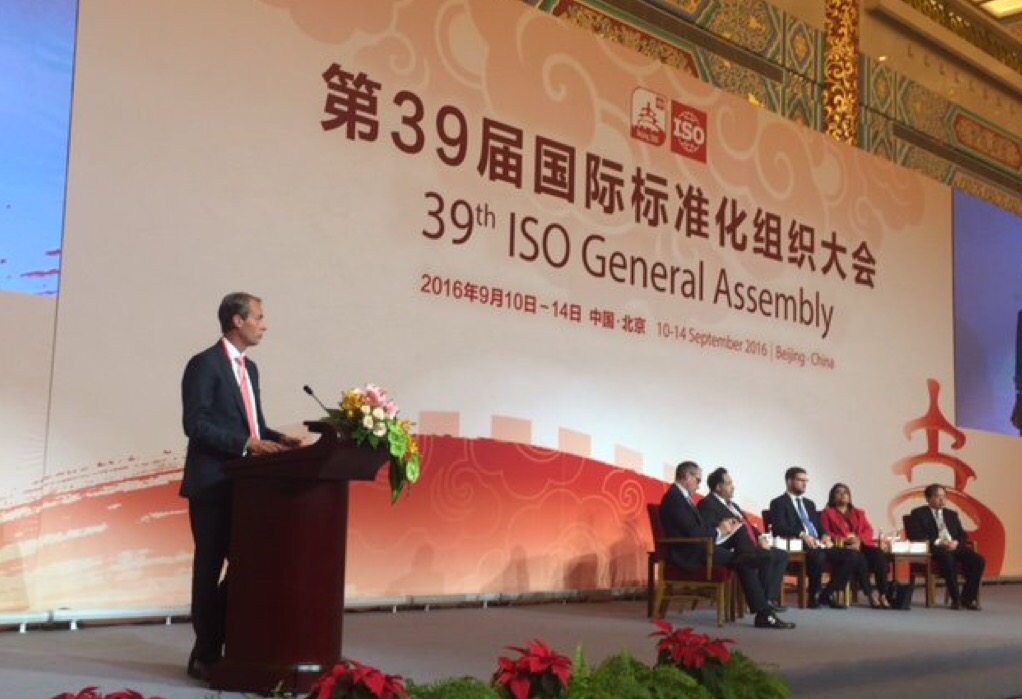
Swedish Deputy Secretary General of UNCTAD, spoke at the event and said that “International standards have been 1 of the key drivers behind the remarkable expansion of global trade”.
At the opening of the meeting the Chinese President Xi Jinping in his speech said that standards is the common language of the world. A great statement.
“Standards have become the common language of the world.”
President XI Jinping said in his speech, “With the deepening of economic globalization, standardization is playing an increasingly important role in facilitating business transactions, supporting industrial development, promoting scientific progress, and regulating social governance, standards have become the common language of the world.”
The Chinese President also pointed out in the address how standards facilitate innovative development and lead the way for progress in our times. “International Standards are the major technical foundation of the development of a global governance system and the development of economic and trade cooperation.”






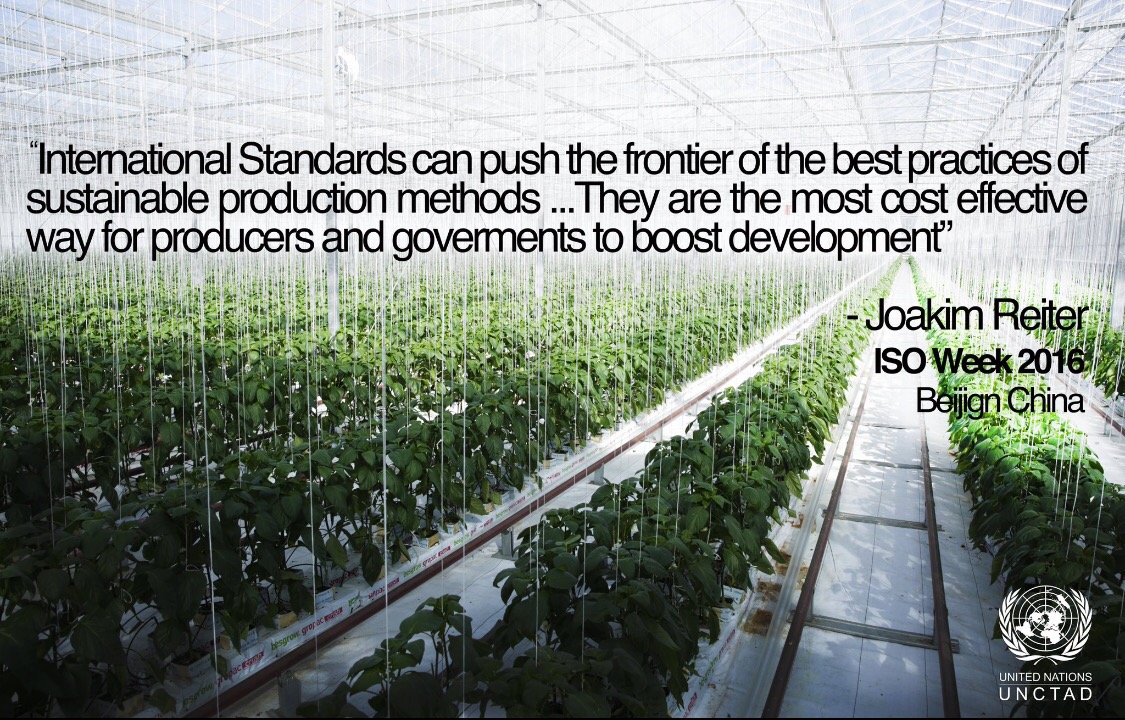

You must be logged in to post a comment.